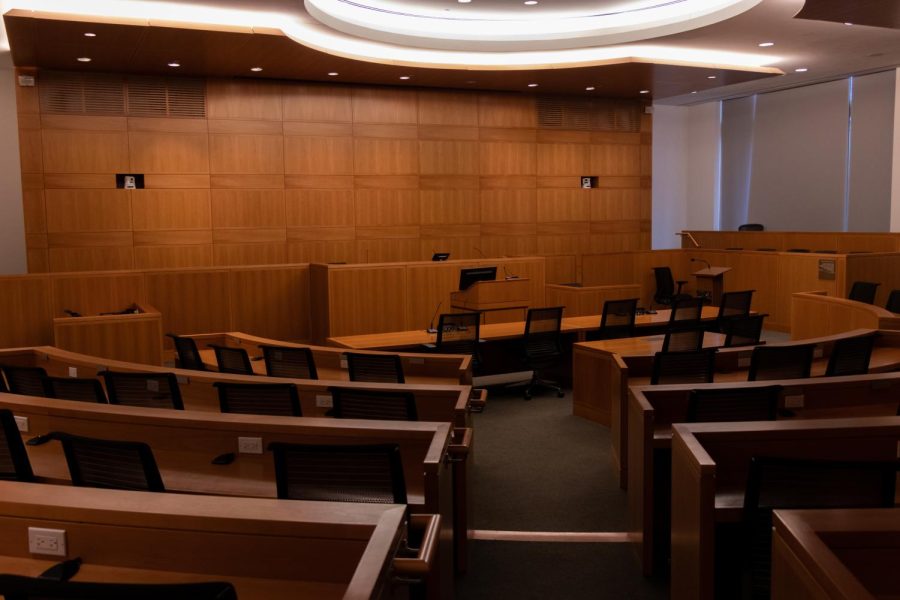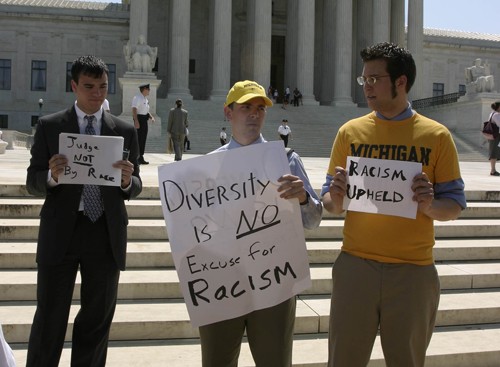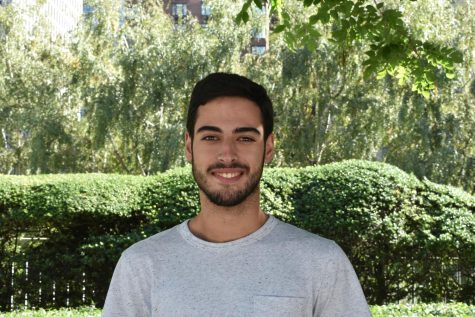SCOTUS’ Affirmative Action Ruling May Impact Fordham Admissions
The court’s decision to prohibit the consideration of race in admissions would alter a core component of the university’s acceptance process and diversity mission
If the Supreme Court decides to prohibit affirmative action policies, the values of diversity in Fordham admissions could be impacted.
November 16, 2022
The United States Supreme Court heard two affirmative action cases on Oct. 31: Students for Fair Admissions (SFFA) v. Harvard College and SFFA v. University of North Carolina (UNC). SFFA is a nonprofit fighting “racial classifications and preferences in college admissions” and places Harvard and UNC affirmative action policies in direct violation of the Civil Rights Act. As a higher education institution, affirmative action is implemented in Fordham’s admissions practices.
In both cases, SFFA argued that in their efforts to admit a diverse class of undergraduate students, the universities discriminate against Asian American applicants. The broad case against UNC targets the 2003 court decision of Grutter v. Bollinger, which upheld the constitutionality of the landmark affirmative action decision, Regents of the University of California v. Bakke.
The legitimacy of affirmative action was established in 1978. Now, SFFA is challenging the notion that historically underrepresented groups should continue to be given a collective advantage. UNC, however, maintained that affirmative action was necessary to their diversity mission. Even today, only 8% of the UNC’s undergraduate student population is Black, compared to 22% of the total North Carolina population.
At Fordham, affirmative action has served as a vital role in diversifying the student body and acknowledging the collective disparities which pro-affirmative action groups have fought to convey during the Supreme Court hearings, according to Patricia Peek, dean of undergraduate admissions at Fordham University.
“As a Jesuit university in the heart of a multiethnic and international city, it has been both part of the University’s mission and an important goal for us in the Office of Undergraduate Admission to build a campus community that is likewise diverse, and which fosters inclusive mindsets,” she said.
Shirley Omari-Kwarteng, Fordham College at Lincoln Center ’25, said that she believes affirmative action is necessary for redressing past and present injustices and that the Supreme Court’s likelihood of overturning the policy represents a regression in redressing historical wrongs.
“The only question I pose for the Supreme Court is that if we are all equal and meritocratic method is what you wish to proceed with from henceforth, why do we still, as a nation, celebrate firsts in positions of authority,” Omari-Kwarteng said.
University President Tania Tetlow, J.D., spoke with ABC News regarding race-based college admissions prior to the Supreme Court hearings concerning affirmative action and highlighted the importance of diversity on college campuses as well as addressing historical inequalities between different groups.
She explained that when historically disadvantaged individuals of Black, Latine and Indigenous descent win elections they are still celebrated as instances of racial progress as opposed to their success being standard.
“Why don’t we acknowledge white people in power in the same manner?” she asked
University President Tania Tetlow, J.D., spoke with ABC News regarding race-based college admissions prior to the Supreme Court hearings concerning affirmative action and highlighted the importance of diversity on college campuses as well as addressing historical inequalities between different groups.
“When we have groups missing (from campus), we know we’re missing some of our best and brightest,” she said. “There’s something very particular about growing up in this country, dealing with the ways that you were underestimated, the educational opportunities you were denied — when a student comes to us having overcome all of that, and succeeding in a way that means they belong at Fordham we’re even more eager for them to be here.”
Currently, Peek believes that Fordham approaches the admissions process holistically by considering diversity, inclusion, academic performance and high school rigor as well as the availability of opportunities, service and commitment, and leadership among other factors.
Past Supreme Court cases against affirmative action resulted mainly in narrowing race-conscious admissions to be more individualized for each applicant. This individualization ensured that no applicant should be put at an advantage solely for their racial identity, a process referred to as holistic admissions. Should SFFA prevail, UNC, Harvard College and other universities across the country would have to adopt race-neutral admissions policies that do not evaluate applications with nuance due to applicants’ racial identities.
Currently, Peek believes that Fordham approaches the admissions process holistically by considering diversity, inclusion, academic performance and high school rigor as well as the availability of opportunities, service and commitment, and leadership among other factors. Pending the policy’s potential removal, the university’s Office of Undergraduate Admissions intends to implement colorblind initiatives, according to Peek.
“Any further narrowing will create a loss of information that informs an understanding of the student experience,” she said. “So admission offices will need to think about more race-neutral strategies that can provide some of that missing context.”
The extent of the Supreme Court’s potential overturning of affirmative action legitimacy is expected to trickle down to other race-conscious programs, including employment policies.
Omari-Kwarteng believes that eradicating affirmative action in higher education would hinder upward social mobility and achievements for minority groups.
“If the Supreme Court proceeds with the assumed ruling on Affirmative Action, they are robbing American youth of potentially leveling the socio-economic playing field,” she said. “We’ve only just seen marginalized groups begin to crack the glass ceilings placed above us for centuries and to eliminate affirmative action is to re-seal the cracks made by those before us.”
The court will likely not release a decision until June or July of 2023. Due to the court’s conservative majority, the potential effects of the abolition of affirmative action policy are being seriously considered by universities and students across the U.S. if the court rules in favor of SFFA, the Office of Undergraduate Admissions concluded that they would have to modify their 2024-25 admissions cycle.














